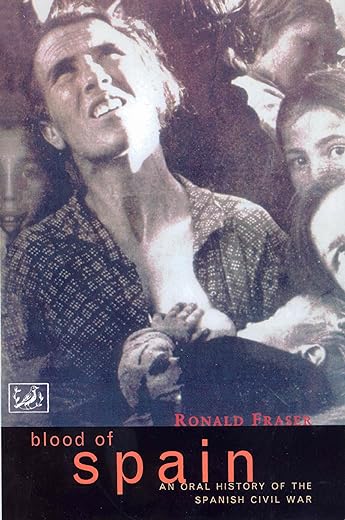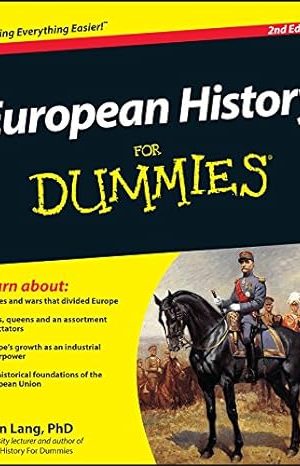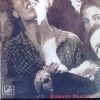Blood Of Spain: An Oral History of the Spanish Civil War
£8.50
We discover what civil war, revolution and counter-revolution actually felt like from inside both camps. The contours of the war take shape through the words of the eyewitnesses. The atmosphere of events is vividly recaptured. And though the lived experience of the participants is revealed the uniquely tragic essence of all civil war. ‘Fascinating and brilliantly unorthodox. ‘ Hugh Thomas, author of THE CONQUEST OF MEXICO.
Read more
Additional information
| Publisher | New Ed edition (30 Jun. 2012), Vintage Digital |
|---|---|
| Language | English |
| File size | 2513 KB |
| Text-to-Speech | Enabled |
| Screen Reader | Supported |
| Enhanced typesetting | Enabled |
| X-Ray | Not Enabled |
| Word Wise | Enabled |
| Sticky notes | On Kindle Scribe |
| Print length | 624 pages |




by monica macDonald M M Macdonald
My Son in law was delighted with this gift….as a historian, a revolutionary and a resident of Spain!
by paul j morris
very good book
by Ger McCloskey
excellent book
by Guido Corvinus
Being an interesting collage of interviews with all kinds of participants who saw what happened with their own eyes (and sometimes could influence to some extent what happened), it is hardly an “oral history” though.
The author collected impressive amount of personal memories. The book is constructed chronologically with (usually quite short) excerpts from these, interspersed with passages of I’m not sure what – interviewees’ stories condensed by the author? author’s own views and explanations? opinions thought by the author to represent reliably interviewees’ views and ideological stances?
This is very confusing and does not justify the “oral history” subtitle. It would be much better if the simplest structure were adopted – full (or shortened for brevity if applicable) individual narratives in separate chapters, with possible addition of something like “points of rupture”.
Speech and press citations are a very valuable addition though. I would be happy to see more of them in the book.
by Ann Stevenson
Fantastic insight lots of information.
by MH Lambert
I am yet to encounter a single SCW (Spanish Civil War) historian who doesn’t put this on their “essential” side of a bibliography. It allows English-speaking students and those interested in the war an irreplaceable gateway into individual stories of the war and revolution. At the time – and to this day – it is landmark in its scope and content.
I can sympathise with the other reviewer a little. The structure is confused and complicated. It is not a book to read cover to cover really; it is one to follow in conjunction with other histories and to pick up where appropriate. For instance, it has encounters and interviews punctuated by Fraser’s own take on the war in a piecemeal and sometimes broken format. Frequently, protagonists appear at different times in the book (capitalised helpfully) only in passing and you can easily lose focus. The segmentation of the book is often frustrating.
That said the book is truly magnificent in supplementing general and more local histories of the war. The core of the book is segments of interviews sewn together with Fraser’s narrative across a whole scope of stories of participants: from the highest commanders to the lowliest braceros (landless labourers), its breadth is its main feature. You can pick the book up and read about personal experiences from a variety of political viewpoints, areas of Spain and during the whole process of the war, from the demise of the Republic (February 1936) to the capture of Madrid (April 1939) by Franco. The sheer variety of interviews and the “off the beaten track” way in which Fraser constructs a grand narrative of many smaller ones is without match in the historiography of the conflict in English.
This is not a book for all. Those with a passing interest may become confused and frustrated by the implicit knowledge that is often required, and the sheer weight of information. Students and obsessives will find the book without match in English. It allows access to a good amount of primary testimony, but contextualised and from across the political spectrum. After around five years of studying the war I still regularly refer to, and use the book. Not without its faults, but an absolute must for those without sufficient Spanish skills.
by P. G. Lee
Having just returned from the July commemoration of the International Brigades involvement in the Battle of the Ebro I needed to read this book of great scholorship to try to understand both sides of that terrible war.
To understand modern Spain I think it essential to read and contemplate this book. The wounds are still there but publications of this caliber help us to scratch the surface without treading on the sensibilities of those wonderful people, the Spanish, of either political persuassion.
Ps. can you fix the spelling.